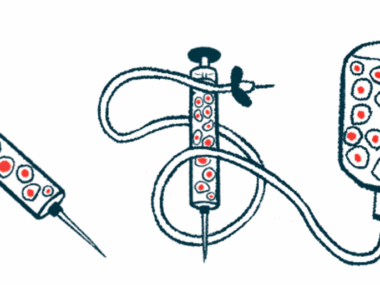Speech Analysis May Help Diagnose Parkinson’s and at Earlier Stage, Study Says
Written by |

Techniques that analyze speech and vocal patterns might be effective tools to diagnose Parkinson’s disease, and possibly at earlier stages than is now possible, according to a new study.
There are no laboratory biomarkers that can detect Parkinson’s, and brain imaging scans do not allow for a definitive diagnosis. The clinical diagnosis of the disease is currently based on the manifestation of two to three motor symptoms, including muscle stiffness, resting tremor, slowness of movement and balance issues.
These criteria can identify Parkinson’s with 90% accuracy, but it takes, on average, 2.9 years to reach a diagnosis.
Speech is a complicated skill, and it’s often affected by Parkinson’s-associated motor changes. Between 60 and 80% of patients may experience reduced vocal loudness, harsh or breathy vocal quality and abnormal speaking rates. For that reason, a team of researchers at three centers — Universidad Politécnica de Madrid, Massachusetts Institute of Technology and Johns Hopkins University — is working to develop a digital diagnostic tool for Parkinson’s disease based on the voice.
In the study “Analysis of speaker recognition methodologies and the influence of kinetic changes to automatically detect Parkinson’s Disease,” published in Applied Soft Computing, researchers tested various speaker recognition techniques for their ability to identify Parkinson’s disease in a database of Spanish-language speech.
Results build on past work by the team, and continues to demonstrate that speech carries information relevant to an accurate and differential diagnosis of Parkinson’s. It also shows that speech features of interest can be automated and assessed, with diagnostic reliability.
The team had previously found that a speech analysis technique, called RASTA-PLP, had an 82% accuracy in automatically identifying Parkinson’s patients. This study uses a further refinement of the RASTA-PLP technique, and identified patients voices with 87% accuracy.
“The early detection of Parkinson along with the anticipation of the start of treatment would have a relevant effect on both the quality of life of patients and the healthcare system. This would allow us to develop new therapies and better understand the disease and its evolution,” Juan Ignacio Godino, a researcher from Universidad Politécnica and a study co-author, said in a news release.
This research is ongoing, and scientists are currently enrolling patients in studies. If you are 45-90 years of age, do not suffer from and do not have a family history of Parkinson’s, you could consider joining the study. A contact form (in Spanish) can be found here.





